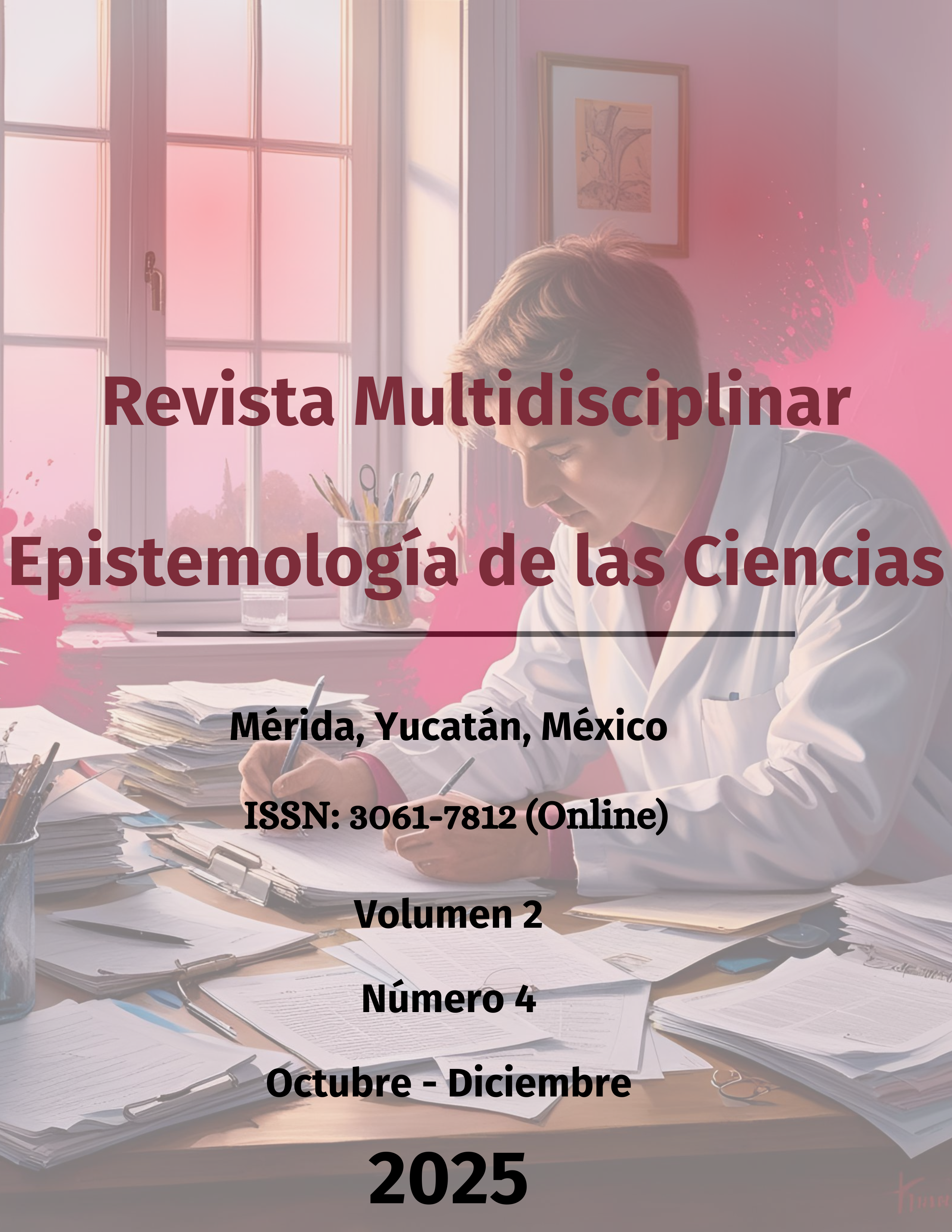Flexible pedagogical model designed to strengthen socio-affective skills in overage secondary school students in Bucaramanga
DOI:
https://doi.org/10.71112/vmw68933Keywords:
flexible model, social-emotional skill, overage, strategies, emotional educationAbstract
Currently, social-emotional education not only enables the development of skills that help regulate emotional responses but also contributes to enhancing students’ ability to apply reason in self-knowledge, in order to self-regulate. Law 2383 of 2024 promotes social-emotional education in educational institutions in Colombia, aiming for the holistic development of students through cognitive, social, and emotional competencies. Within this framework, flexible models such as “Pensar” are implemented to encourage the inclusion of overage students and to combat grade repetition, especially in contexts affected by phenomena such as migration and dropout. This research aims to evaluate the impact of the Pensar Model on the social-emotional component of secondary school students in the city of Bucaramanga, using a mixed-method approach with a contemporary cross-sectional design, including a sample of 145 students and 9 teachers across four institutions. Questionnaires were used to gather information on the implementation of the model and its influence on students’ learning and well-being. In conclusion, the research highlights advancements in students’ social-emotional skills, especially in social awareness and conflict resolution, although challenges persist in self-regulation and stress management. The model’s teachers use intentional strategies that strengthen social-emotional and cognitive development, positively impacting both the school and family environment.
Downloads
References
Bandura, A. (1977). Self-efficacy: Toward a unifying theory of behavioral change. Psychological Review, 84(2), 191–215. DOI: https://doi.org/10.1037//0033-295X.84.2.191
Bandura, A. (1997). Self-efficacy: The exercise of control. W. H. Freeman.
Bisquerra Alzina, R. (2003). Educación emocional y competencias básicas para la vida. Revista de Investigación Educativa, 21(1), 7–43. https://revistas.um.es/rie/article/view/99071
Bowlby, J. (1988). A secure base: Parent-child attachment and healthy human development. Basic Books.
Brunzell, T., Waters, L., & Stokes, H. (2016). Teaching with strengths in trauma-affected students: A new approach to healing and growth in the classroom. American Journal of Orthopsychiatry, 86(1), 75–87. DOI: https://doi.org/10.1037/ort0000048
Creswell, J. W. (2013). Pasos para llevar a cabo un estudio académico de métodos mixtos.
Creswell, J. W. (2016). Reflexiones sobre el informe del grupo de trabajo MMIRA: el futuro de los métodos mixtos. Revista de Investigación de Métodos Mixtos, 10(3), 215–219.
Deci, E. L., & Ryan, R. M. (1985). Intrinsic motivation and self-determination in human behavior. Plenum. DOI: https://doi.org/10.1007/978-1-4899-2271-7
Duval, S., & Wicklund, R. A. (1972). A theory of objective self awareness. Academic Press.
Durlak, J. A. (2020). La importancia de la calidad en el aprendizaje socioemocional: Una revisión de la investigación. Investigaciones Educativas, 30(2), 1–16.
Gutiérrez, D. (2020). Formación docente en la era de la pedagogía flexible: Retos y oportunidades. Revista de Formación Docente, 21(1), 30–45.*
Hoffman, M. L. (1992). Empathy and moral development: Implications for caring and justice. Cambridge University Press.
Masten, A. S. (2014). Ordinary magic: Resilience in development. Guilford Press.
Masten, A. S. (2019). Resilience from a developmental systems perspective. World Psychiatry, 18(1), 101–102. DOI: https://doi.org/10.1002/wps.20591
Mayer, J. D., & Salovey, P. (1997). What is emotional intelligence? En P. Salovey & D. J. Sluyter (Eds.), Emotional development and emotional intelligence: Educational implications (pp. 3–31). Basic Books.
Méndez Martínez, M. (2024). Trayectorias educativas de jóvenes bogotanos en extraedad: un enfoque cultural y contextual. Praxis, Educación y Pedagogía, (13), e40214547. https://doi.org/10.25100/praxis_educacion.v0i13.14547 DOI: https://doi.org/10.25100/praxis_educacion.v0i13.14547
Mendoza, L., & Sánchez, A. (2021). Formación docente y adaptación pedagógica: Desafíos y oportunidades. Editorial Docencia.
Ortega, P., & Fernández, R. (2019). Modelos pedagógicos emergentes: Respuestas a una sociedad en cambio. Revista Educación y Sociedad, 20(3), 45–58.
Ramírez, P. (2019). Adaptabilidad en el aula: Hacia una pedagogía flexible. Revista Educación y Sociedad, 21(4), 78–92.
Richelle, M. (2004). El renacimiento de la conciencia. Olvidos y omisiones de la historia. Revista de Historia de la Psicología, 25(1).
Rojas, A. (2021). Aprendizaje colaborativo en el modelo flexible: Un enfoque innovador. Revista de Aprendizaje Colaborativo, 22(2), 50–65.
Ryan, R. M., & Deci, E. L. (2018). Self-Determination Theory: Basic psychological needs in motivation, development, and wellness. Guilford Press. DOI: https://doi.org/10.1521/978.14625/28806
Ryan, R., & Deci, E. L. (2000). La Teoría de la Autodeterminación y la facilitación de la motivación intrínseca, el desarrollo social y el bienestar. American Psychologist, 55(1), 68–78. DOI: https://doi.org/10.1037/0003-066X.55.1.68
Salkind, N. J. (Ed.). (2010). Enciclopedia del diseño de la investigación (Vol. 1). SAGE.
Salovey, P., & Mayer, J. (1990). Inteligencia emocional. Imaginación, Conocimiento y Personalidad, 9(3), 185–211.
Tenti Fanfani, E. (2008). Dimensiones de la exclusión educativa y políticas de inclusión. Revista Colombiana de Educación, (54), 60–73. https://doi.org/10.17227/01203916.54rce60.73 DOI: https://doi.org/10.17227/01203916.54rce60.73
UNICEF. (2019). Estrategia educativa de UNICEF Every Child Learns 2019–2030.
Ungar, M. (2011). The social ecology of resilience: A handbook of theory and practice. Springer. DOI: https://doi.org/10.1007/978-1-4614-0586-3
Valencia, N. (2022). Desafíos y oportunidades en la implementación de la pedagogía flexible. Revista Innovación Educativa, 17(1), 12–27.
Vygotsky, L. S. (1978). Mind in society: The development of higher psychological processes. Harvard University Press.
Downloads
Published
Issue
Section
License
Copyright (c) 2025 Multidisciplinary Journal Epistemology of the Sciences

This work is licensed under a Creative Commons Attribution 4.0 International License.











